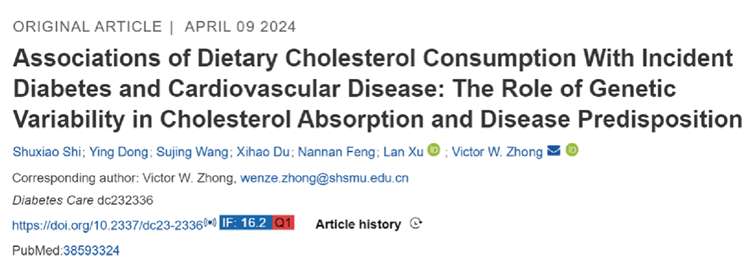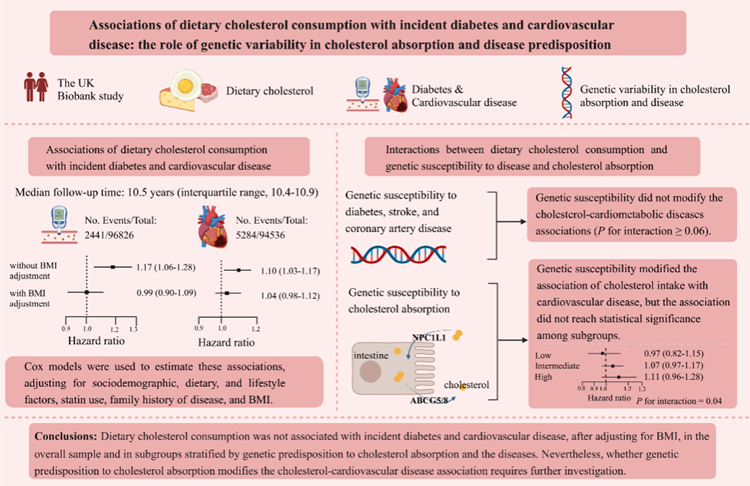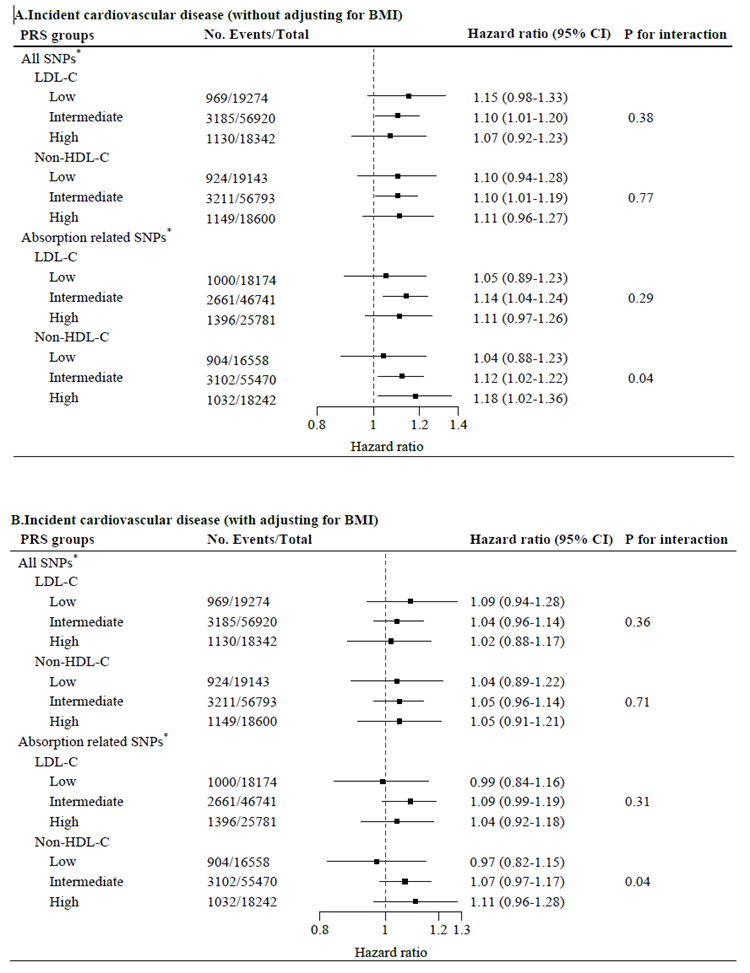Food is the top priority for the people, and safety is the top priority for food. Food is closely related to people's lives, and the topic of food has long been talked about by people. From what to how much to eat, these dietary issues have always been the focus of researchers. Eggs are rich in high-quality protein and various nutrients. Eating one egg a day is a dietary habit for many people. However, the health risks associated with cholesterol in eggs have been controversial in academia for nearly a century. Early animal experiments and population intervention studies found that dietary cholesterol can increase blood lipids and increase the risk of cardiovascular disease. Therefore, the American Heart Association first recommended a daily intake of cholesterol less than 300 mg in 1968. However, in the following decades, there has been controversy over whether dietary cholesterol leads to elevated blood lipid levels and an increased risk of cardiovascular metabolic diseases, and scientific evidence is still unclear. Based on this, in 2015, the US Dietary Guidelines canceled the daily dietary cholesterol intake limit of less than 300 mg, causing great controversy and widespread discussion.
In response to the adjustment and controversy surrounding the dietary guidelines for American residents, Zhong Wenze's research team published an original research paper in JAMA in 2019, analyzing the nutritional big data of six cohorts and finding that the more food cholesterol intake, the higher the risk of cardiovascular disease death and all-cause death (JAMA. 2019; 321 (11): 1081-1095), once again sparking a wave of research on the health risks of cholesterol intake.

(Picture from: JAMA. 2019;321(11):1081-1095)
The relationship between food cholesterol and cardiovascular metabolic diseases has different research results, and the JAMA study mentioned above also suggests individual differences in the relationship between the two. Zhong Wenze's research group suggests that one possible reason for this inconsistency and individual differences is the difference in genetic risk. The research group focused on this reason in an editorial published in the top tier journal in the field of nutrition, American Journal of Clinical Nutrition, in August 2023. Genetic risk can be divided into two types: one is the genetic risk of disease onset, and the other is the individual's ability to absorb and metabolize cholesterol differently, which is also regulated by relevant gene loci.

In order to verify the impact of genetic risk differences on the relationship between food cholesterol and cardiovascular metabolic diseases, Zhong Wenze's research team published a paper titled "Associations of Dietary Cholesterol Consumption with Incident Diabetes and Cardiovascular Disease: The Role of Genetic Variability in Cholesterol Absorption and Disease Predisposition" in the top endocrine journal Diabetes Care in April 2024. This study explored the relationship between food cholesterol intake and diabetes and cardiovascular disease using the UK Biobank database, focusing on the genetic risk of disease and the modification of genetic risk related to cholesterol absorption capacity on the relationship between cholesterol intake and diabetes and cardiovascular disease.


(Picture from: Diabetes Care)
Method
This study is based on UK Biobank and includes over 90000 individuals aged 41-75 with genetic and dietary data. The outcome was new onset diabetes and cardiovascular disease. Gene risk is quantified by polygene score. Polygene score related to diabetes, cardiovascular disease and food cholesterol absorption were calculated. The genes related to cholesterol absorption include NPC1L1 and ABCG5/8 genes, with scoring weights based on genome-wide association results of high-density lipoprotein cholesterol (HDL-C) and low-density lipoprotein cholesterol (LDL-C). The study used Cox survival analysis to explore the relationship between food cholesterol intake and disease outcomes.
Research results
After an average follow-up of 10 years, high cholesterol intake was associated with increased risk of diabetes and cardiovascular disease (diabetes: HR, 1.17 [95% CI, 1.06-1.28]; cardiovascular disease: HR, 1.10 [95% CI, 1.03-1.17]), but this association disappeared after additional BMI correction (diabetes: 0.99 [95% CI, 0.90-1.09]; cardiovascular disease: 1.04 [95% CI, 0.98-1.12]). We found that the disease related gene risk score did not affect the relationship between food cholesterol intake and diabetes and cardiovascular disease (P for interaction>0.1).
In the gene risk score related to cholesterol absorption (divided into low, medium, and high groups based on the third quartile), regardless of BMI correction, the study found a significant interaction (P=0.04) between food cholesterol and polygenic scores related to cholesterol absorption in the analysis based on cardiovascular disease as outcomes. In the subgroup of uncorrected BMI, we found that "high cholesterol absorbers" had a higher risk of cardiovascular disease than "low cholesterol absorbers" (intermediate risk subgroup: HR, 1.12 [95% CI, 1.02-1.22]; high risk subgroup: HR, 1.18 [95% CI, 1.02-1.36]). In the subgroup corrected for BMI, the same trend was also observed, although the subgroup results did not reach significant (intermediate risk subgroup: HR, 1.07 [95% CI, 0.97-1.17]; high risk subgroup: HR, 1.11 [95% CI, 0.96-1.28]).

(Picture from: Diabetes Care)
This study is the first to explore whether genetic risk will modify the relationship between food cholesterol intake and diabetes and cardiovascular disease from two perspectives. The results suggest that disease related genetic risk does not affect the relationship between food cholesterol intake and diabetes and cardiovascular disease. Among high cholesterol absorbers, consuming too much food cholesterol may have certain risks. However, considering that overall intake of dietary cholesterol does not increase the risk of cardiovascular disease, further research is needed to confirm this result.
Both AJCN and Diabetes Care papers are authored by the School of Public Health at Shanghai Jiao Tong University as the sole first author and corresponding author. The first author of the AJCN paper is Shuxiao Shi,a doctoral student, and the independent corresponding author is Wenze Zhong. The first author of the Diabetes Care paper is Shuxiao Shi and master student Ying Dong, and the independent corresponding author is Wenze Zhong. This study was supported by the National Key Research and Development Program of China and the National Natural Science Foundation of China, etc.

